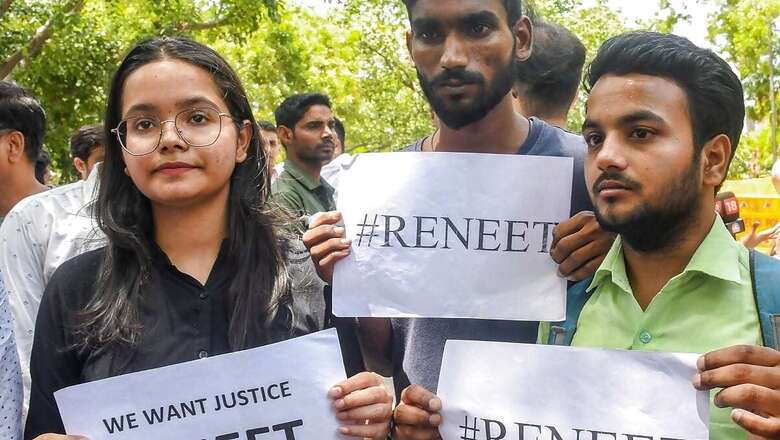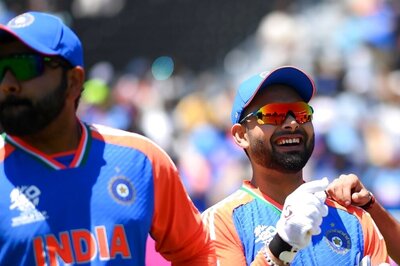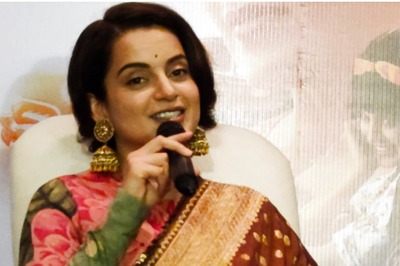
views
Change in the pattern of tests based more on “competence level than rote learning” is the only solution to prevent examination question paper leaks, said Vidya Bharati Akhil Bharatiya Shiksha Sansthan on Thursday over the recent allegations of irregularities in the National Eligibility-cum-Entrance Test (NEET-UG) for entry to medical courses.
The organisation is the educational wing of the Rashtriya Swayamsevak Sangh (RSS), which is the parent body of the Bharatiya Janata Party (BJP).
All India Vidya Bharati president Ramakrishna Rao while answering a question on exam leaks like NEET during the launch of its annual report said, “The only solution to these types of shameful incidents can be the change in the pattern of test, which should be based more on the level of competence, comprehension and aptitude, instead of the test of memorising and rote learning.”
The organisation’s annual report was released showcasing its work in the field of education through its schools including in areas with limited access to schools such as tribal and strife-torn regions.
The question on recent incidences of major examination paper leaks came up at a time when the BJP-led Centre has cancelled several national-level tests including UGC-NET and CSIR-UGC in the wake of the controversies and has set up a high-level committee to review the functioning of the National Testing Agency (NTA) that conducts these high-stakes exams.
Speaking on the reforms in education, Rao said that the organisation is already working on pre-school education through Bal Vatika, as recommended in the new National Education Policy (NEP), 2020.
The National Democratic Alliance government under Prime Minister Narendra Modi introduced a new education policy, based on which reforms in the sector are being carried out by the ministry.
“Shishu Vatikas run by Vidya Bharati have been incorporating a school-based education system without bags, without examinations, without homework, and without stress,” said Rao.
As per the NEP, he added, appropriate steps are being taken for the development of the curriculum in accordance with the National Curriculum for Foundational Stages for School Education (NCF-SE).
The organisation, set up in 1977, currently runs 12,094 formal schools in 682 districts of India. It has also started a new project, School on Wheels, for students in sensitive and disturbed areas, providing education to those living in 480 refugee camps across the country.
It also runs more than 8,000 non-formal education (NFE) centres free of cost in urban slums, remote and tribal areas as well as in the Northeast.
Stay ahead with all the exam results updates on News18 Website.




















Comments
0 comment